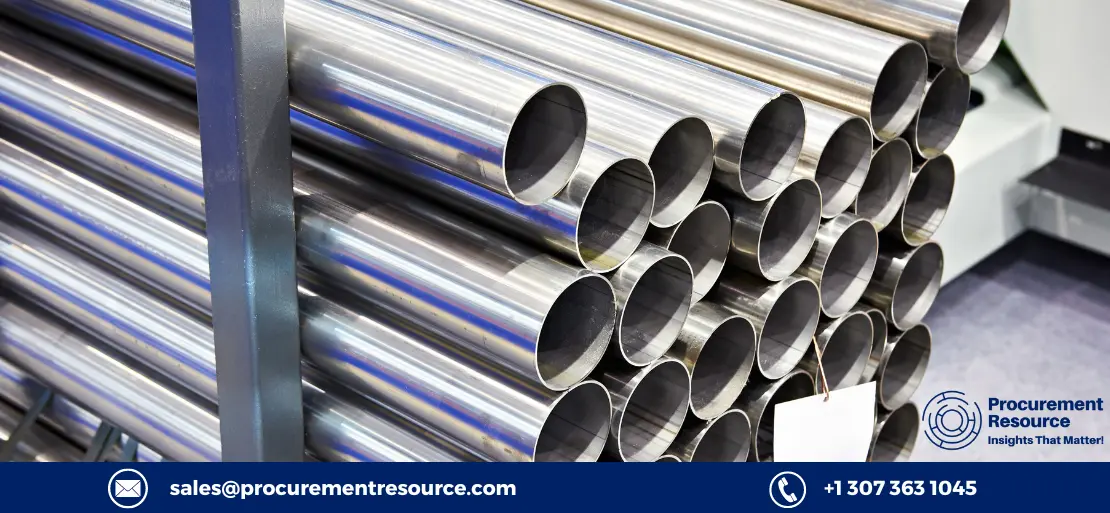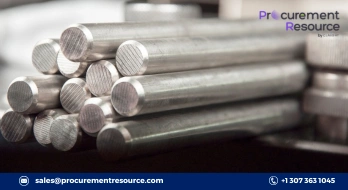Hot Rolled Steel Prices Will Rise Further Due To An Increase In Coking Coal & Iron Ore Prices

Steelmakers In India Head Northeast Due To The Effect Of Coking Coal Prices
Prices of Flat Steel in India Rose Almost 25 Percent in Only Two Months After the Ukraine War
Prices of flat steel in India sprung by almost 25 percent in only two months after the invasion of Ukraine. But, later, due to a decline in prices of raw materials, the export duty imposed by the Government of India along with the increasing levels of stock, the flat steel prices settled down. These costs are prepared to get past with Indian producers' input costs heading northward.
Request Access For Regular Price Update of Steel
Ninety percent of the Indian steel industry's coking coal requirement is imported, primarily from Australia. While their prices followed a declining trend for the better part of this fiscal, limited volatility was seen in anticipation of disruptions in the supply chain.
The relieving of the unofficial ban by China on Australian-origin coal imports will not just amplify the volatility but will also change the supply chain once again. While there have been reports that in China, three power plants and one steel player have already received permission to buy Australian coal, more entities will likely follow suit, as per a recent study by CRISIL Research.
It can also be noted that the expectation of coal trade resumption between China and Australia has already propelled the prices of coking coal past USD 300/ tonne by December-end. But with the Chinese New Year approaching, a boost in volumes of trade between Australia and China is anticipated just above March. But most Chinese imports are still unlikely since Chinese steel mills have adjusted to Russian and Mongolian coal during the last two years already, which arrives at a healthy bargain in comparison to Australian coal.
Request Access For Regular Price Update of Iron Ore
Furthermore, a study by CRISIL indicates that Australian coal production will probably not notice any sharp gains owing to concerns over the environment; prices of coking coal will likely remain on the higher end this year at about the USD 250- USD 300 mark.
From the point of view of steel consumers, growing input costs have provoked integrated and secondary steel players to declare spikes in costs all over segments in the past two weeks, by INR 2,000-2,500 per tonne.
It was as though the increase in prices of coking coal wasn't enough. With coking coal, the prices of domestic iron ore also rose significantly since the upliftment of export duty that came into effect last November. Following that, the National Mineral Development Corporation (NMDC) increased iron ore fines prices by over 30 percent. Further, the costs will only move upwards with anticipated healthy regional demand in a pre-election year as well as boosting prices of iron ore globally, which also increased by 20 percent over the last two months.
Read More About Steel and Iron Ore Production Cost Reports - REQUEST FREE SAMPLE COPY IN PDF
Regarding long steel prices, the costs for secondary players are anticipated to witness a slight decline, propelled by decreasing prices of thermal coal, which in turn, primarily drive TMT prices downward by an anticipated 1-3 percent subsequent fiscal.
As per expert predictions, at this onset, with the production of coal not likely to witness any sharp gain in Australian coking, coal prices are likely to remain elevated in 2023, almost at the USD 250- USD 300 mark.
According to Procurement Resource, the following article covers the price rise of Hot Rolled Steel due to an increase in prices of Coking Coal and Iron Ore. Furthermore, flat steel prices in India rose by around 25 percent in only two months following the Ukraine invasion by Russia. However, owing to a drop in raw material prices, the export duty imposed by the Government of India, along with the increasing levels of stock, the flat steel prices cooled off. India imports 90 percent of its coking coal requirement from Australia, and the lifting of an unofficial ban in China means the supply chain will change again. This resumption leads to the rise in prices of coking coal past USD 300/ tonne by December-end.
Furthermore, a study by CRISIL indicates that Australian coal production will probably not notice any sharp gains owing to concerns over the environment; prices of coking coal will likely remain on the higher end this year at about the USD 250- USD 300 mark. Also, with coking coal, the prices of domestic iron ore rose by 30 percent by the National Mineral Development Corporation (NMDC) significantly since the upliftment of export duty that came into effect last November. Finally, with the production of coal not likely to witness any sharp gain in Australian coking, coal prices will likely remain elevated in 2023, almost at the USD 250- USD 300 mark.




.webp)